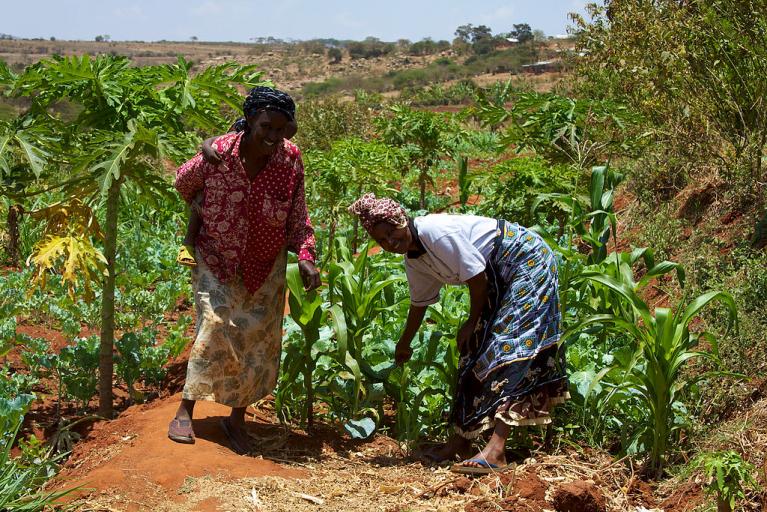Latest Resources

22 October 2024
ACB’s artist’ gallery – a celebration of artistic contributions
Over the years, a diverse range of artists and graphic designers have illustrated and designed the covers and content pages of our publications and our factsheets, and collaborated on the design of our logo and brand identity, as reflected on our website and communications collateral. To honour their contributions to the ACB, we’ve collated some […]

27 July 2022
Playing chess with the world’s biodiversity. The post-2020 Global Biodiversity Framework and Afri...
A blog by ACB’s Sabrina Masinjila, Linzi Lewis and Mariam Mayet The crafting of a new global biodiversity framework In 2018, Parties to the Convention on Biological Diversity (CBD) embarked on multilateral intergovernmental talks toward crafting a new global deal to curb global biodiversity loss (the Post-2020 Global Biodiversity Framework (GBF).1 The CBD, adopted in […]

22 June 2022
The failure of multilateralism – and rise of corporate capture of the CBD
The current state of the planet, and in particular climate change, biodiversity loss, and land degradation, reflect on the legitimacy of environmental multilateralism such as the Convention for Biological Diversity (CBD). The convergence of the multiple global ecological, climate, and economic crises is not been met with the requisite urgent response and action. Instead, over […]

22 June 2022
Who will fund biodiversity conservation, and its implications for Africa?
Where adequate funds will come from to reduce rampant biodiversity loss is crucial to ensuring the implementation of the Global Biodiversity Framework (GBF). African countries are demanding that developed countries pay for their ecological debt, and implementation of the GBF, in terms of Article 20 of the Convention for Biological Diversity (CBD). But how will […]

21 June 2022
Where is agricultural biodiversity in the Post-2020 GBF?
While the Post-2020 Global Biodiversity Framework (GBF) attempts to deal with the indirect and direct drivers of biodiversity decline, as outlined by the Intergovernmental Science-Policy Platform on Biodiversity and Ecosystem Services (IPBES) and the Global Biodiversity Outlook Reports, it remains glaringly weak, with serious and severe gaps. We wonder, where does the Post-2020 GBF deal […]

25 February 2020
Insights from farmer dialogues in Kalulushi, Zambia
In 2019, the African Centre for Biodiversity (ACB) co-hosted four farmer exchanges in Zambia. The first was in Kalulushi, Copperbelt Province, in partnership with the Zambia College of Horticultural Training (ZCHT) Chapula, Kasisi Agricultural Training Centre (KATC), and the Zambia Alliance for Agroecology and Biodiversity (ZAAB). ACB Advocacy and Research Officer Rutendo Zendah gives an […]

28 March 2019
Cyclone Idai’s warning – Shift to agroecological systems that work with nature or suffer more dev...
Ranked as one of the worst tropical storms on record to hit Africa, Cyclone Idai made landfall in Beira on Thursday 15 March, before lacerating its way across central Mozambique and then on towards neighbouring Malawi and Zimbabwe. Heavy rains, flooding and storm damage has resulted in devastation on a vast scale. It is estimated […]

16 January 2019
Africa Group captured by colonial medicine, agribusiness and US military interests on gene drives...
On the pretext of supporting scientific innovation for malaria eradication, African countries vociferously defended a techno-fix that does not address the wider determinants of malaria – but rather, represents the changing face of colonial medicine and threatens the biodiversity of an entire continent. At the UN’s recent Convention on Biological Diversity (CBD), a proposal to […]

30 October 2018
Reflections on ITPGRFA, UPOV 1991 and South Africa
Recently the Department of Agriculture, Forestry and Fisheries (DAFF) held national consultations on whether South Africa should accede to two international agreements related to seed: The International Treaty on Plant Genetic Resources for Food and Agriculture (ITPGRFA, or the Treaty) and the International Convention on the Protection of New Varieties of Plants (UPOV) 1991. The […]

14 June 2018
Restrict, regulate and reduce corporate power in South Africa’s food system
I attended a dialogue on corporate ownership in South Africa in May, in Tshwane, hosted by Trade and Industrial Policy Strategies (TIPS). There was strong government representation at the dialogue, including from Treasury; Trade and Industry; Minerals and Energy; and Planning, Monitoring and Evaluation. Someone from the EU was also there. Corporate concentration is a […]
